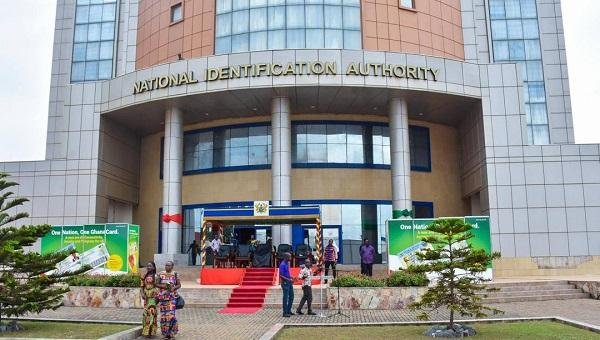News
Loneliness increases risk of stroke, others —kills over 100 every hour

A World Health Organisation (WHO) report has linked loneliness to over 100 deaths every hour, totalling more than 871,000 global fatalities each year.
The WHO Commission on Social Connection revealed in its report that one in six people globally experience loneliness, with significant consequences for physical and mental health, well-being, and economic productivity.
WHO defines social connection as the ways people interact with others; loneliness as the painful feeling resulting from a gap between desired and actual connections; and social isolation as a lack of sufficient social ties.
Dr Tedros Adhanom Ghebreyesus, Director-General of the World Health Organisation, noted that despite the limitless opportunities for connection in today’s world, increasing numbers of people feel isolated and alone.
He warned that beyond individual impacts, unaddressed loneliness and social isolation could cost societies billions through health care, education, and employment losses.
The report highlights that loneliness affects people of all ages, particularly youth and those in low- and middle-income countries.
Among individuals aged 13–29, between 17–21 per cent reported feeling lonely, with the highest rates among teenagers.
In low-income countries, about 24 per cent reported loneliness—double the 11 per cent in high-income countries.
She stressed that policies must embed social connection across sectors such as digital access, health, education, and employment.
Ms Mpemba noted that the root causes of loneliness and isolation were varied, including poor health, low income, limited education, living alone, inadequate infrastructure, weak public policy, and digital influences.
The report also cautions about the mental health risks associated with excessive screen time and negative online experiences, particularly for youth.
It further outlines the health and economic consequences: social connection reduces inflammation, supports mental health, lowers the risk of major diseases, and can prevent premature death.
It also enhances community safety and prosperity. In contrast, loneliness and isolation increase the risk of stroke, heart disease, diabetes, cognitive decline, depression, and early mortality.
At the societal level, the report indicated that loneliness weakened social cohesion and incurred high costs in lost productivity and health care.
It said communities with strong social ties tended to be more resilient and responsive to crises.
Moreover, the WHO affirmed that solutions existed at national, community, and individual levels—from awareness campaigns and policy reforms to building inclusive social infrastructure such as parks, libraries, and community centres, alongside mental health support.
It called on individuals to act—check in on a friend, be fully engaged in conversations without digital distractions, connect with neighbours, participate in community groups, or offer their time through volunteering. —GNA
News
Criminal and Seditious Libel Law was repealed in 2001 yet we still face harassment – NPP

The New Patriotic Party (NPP) has criticised the government for what it calls a return to the “culture of silence” in Ghana, despite the repeal of the Criminal and Seditious Libel Law more than two decades ago.
In a press statement issued on Wednesday, the party said the arrest and detention of its Bono Regional Chairman, Kwame Baffoe, also known as Abronye, for allegedly insulting the Inspector General of Police (IGP) was the latest sign of political intimidation.
According to the NPP, eight months into President John Dramani Mahama’s administration, state security had been “weaponised” not to fight illegal mining or protect citizens, but to intimidate and punish dissenting voices.
The party said insecurity in areas such as Bawku, Nkwanta and Gbeniyiri in the Savannah Region had claimed more than 32 lives and displaced over 50,000 people, yet the police and national security were more focused on arresting opposition supporters and social media users for their posts.
The NPP noted that Ghana abolished the Criminal and Seditious Libel Law in 2001 under President John Agyekum Kufuor to protect free speech and media freedoms.
It described the recent arrests of opposition members as an erosion of those democratic gains.
The party said it did not condone insults or vulgar language in public discourse but stressed that anyone who felt defamed should seek redress through civil defamation suits, not criminal prosecution.
It also accused the government of undermining the judiciary by “weaponising” it against political opponents, citing the removal of the Chief Justice.
“The growing climate of intimidation and criminalisation of speech is a serious assault on Ghana’s democracy,” the statement signed by NPP General Secretary Justin Kodua Frimpong said.
The NPP called on all Ghanaians to resist what it described as a return to tyranny and pledged to roll out a series of actions to protect the country’s democratic gains.
By: Jacob Aggrey
News
NIA opens Premium Centres to register children

The National Identification Authority (NIA) has started registering Ghanaian children aged between six and 14 years at all its Premium Centres across the country.
The Authority says the exercise is part of its duty to register every Ghanaian, both at home and abroad, so that all citizens can have a secure and verifiable national identity.
It explained in a statement issued today that the registration will help build a complete and inclusive National Identity Register (NIR) that captures every Ghanaian from childhood.
According to the NIA, the fee for first-time registration at Premium Centres is GHS 310, which is the approved charge for premium services.
The Authority said the requirements are the same as for applicants aged 15 years and above.
It affirmed that Parents or legal guardians were required to present either a valid Ghanaian passport of the child, the original copy of the child’s birth certificate, or be a Ghana Card holder who can vouch for the child.
The NIA also announced that from Monday, September 15, 2025, its online registration and booking system will be extended to the remaining 11 Premium Centres nationwide.
This it said will allow parents and guardians to schedule appointments more conveniently and avoid delays at the centres.
It further stated that information on the issuance of Ghana Cards for children aged six to 14 years who had already registered will be shared later.
In the coming weeks, the Authority plans to extend this registration service to all NIA District Offices to make it easier for more people to access the service.
By: Jacob Aggrey













